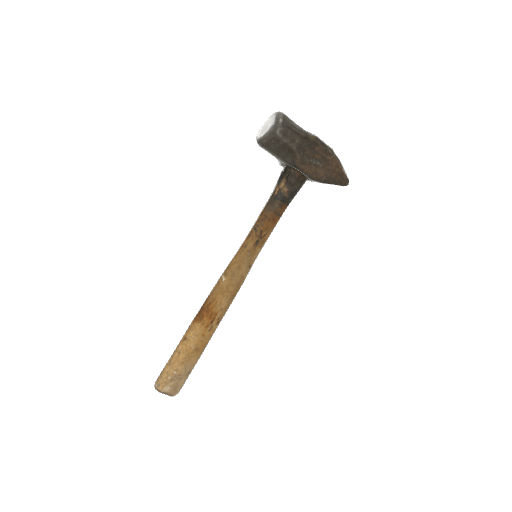Sledgehammer
The sledgehammer is a striking tool used to shape metal, which has been made malleable by the fire of the forge. There are several types for different purposes. The head of this hammer has a flat side to flatten the metal. Its rounded edges do not leave any marks. On the other side, a sharp point is used to create angles in the metal.
Forging large pieces requires two people. While one person holds the piece with a pair of pliers, the other person hammers it. The second person can be the customer, an employee, or an apprentice.
The blacksmith’s trade is learned from a master. In the 17th century, apprenticeships last about three years and have to be notarized, but in the 18th and 19th centuries, these agreements are less formal.
References
Date: 1850–1950
Origin: North America
Owner: Forge Saint-Laurent. Saint-Anaclet-de-Lessard.
Sources:
Dupont, J.-C. (1979). L’artisan forgeron [The craft smith]. Presses de l’Université Laval; Éditeur Officiel du Québec.
Dupont, J.-C. (2006, February 6). Blacksmithing. In The Canadian Encyclopedia. Retrieved July 22, 2022, from https://www.thecanadianencyclopedia.ca/en/article/blacksmithing
Bérubé, A., Durand, F., Ruddell, T., & St-Pierre, S. (1975). Le forgeron de campagne: un inventaire d’outils [The rural smith: a tool inventory] (Collection Mercure: Division de l’histoire, vol. 12). Musée national de l’Homme.
